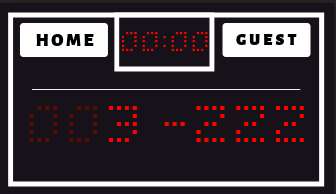Running Up the Score is Hurting High School Sports
The field, the track and the court are all widely accepted as cutthroat arenas where only the very best succeed.
It is the uncertainty of the outcome that keeps fans engaged with the game. However, when Georgia Tech played Cumberland College in football in 1916, the outcome was not in question in the least with the final score being 222-0 according to ESPN.com.
Though most games are not as unequally matched as the infamous game of 1916, there must be a line drawn in which both team’s morals and sportsmanship are kept intact as well as preserving the competition fans love so much. Pro-league games can be an exception to this; however, in high school sports, running up the score is an insult to athletic ethics, and winning teams should instead play second and third string players.
This large gap between scores is what commentators call “running up the score.” Despite the fact that the stronger team has secured a win, they “run up the score” by continuing to rack up points against an easy opponent.
“Personally, I don’t think it’s ethical for people to run up the score, especially if you’re up ten because you’re just bringing down the team that you’re winning against,” girls’ lacrosse captain and sophomore Madison Vo said. “You’re bringing their moral down, and you’re kind of defeating the purpose of a good game.”
Especially for first time players in frosh/soph and junior varsity sports, a lopsided score can lead to crushed spirits. Student-athletes do not sign up for humiliation that comes with overly inflated scores. One of the most egregious lopsided scores was when junior varsity boys’ lacrosse lost 24-4 to Beckman High School on March 18, according to phsbulldogsathletics.org.
Pro-league commentators against limiting the scoreboard argue that “mercying” the opposing team is just as insulting. Winning teams can avoid this potential insult by playing second string players, which keeps the game competitive for both teams.
“If someone is on a team, I want to get them playing time at some point, and so if there are opportunities to do that [play second and third string players], I think that is important to do,” boys’ volleyball coach Eric Graham said. “I don’t know what kind of message you are sending your own team if you’re up by 75 points and not playing other people.”
Fortunately, coaches in tandem with players can solve this issue in high school sports. Playing second or third string players offers valuable experience for the bench players, and both sides get to work their hardest. Plus, the losing side does not feel as demoralized. While this solution will never be cemented into rule books, it can be enforced through societal pressure, as society determines what is and is not ethical in sports.
Sports are meant to entertain, to encourage competition and to foster camaraderie. With the winner not in question, running up the score ruins why we play or watch sports in the first place.
Your donation will support the student journalists of Portola High School. Your contribution will allow us to purchase equipment and cover our annual website hosting costs.

Farhad Taraporevala is your 2019-2020 Co-News Editor for his fourth year as a part of the Portola Pilot. He is excited to work on the news section for...

Priscilla Baek is Portola’s Media Director. She has spent five years of her life in Yemen immersed in charitable organizations. With a passion for writing...




